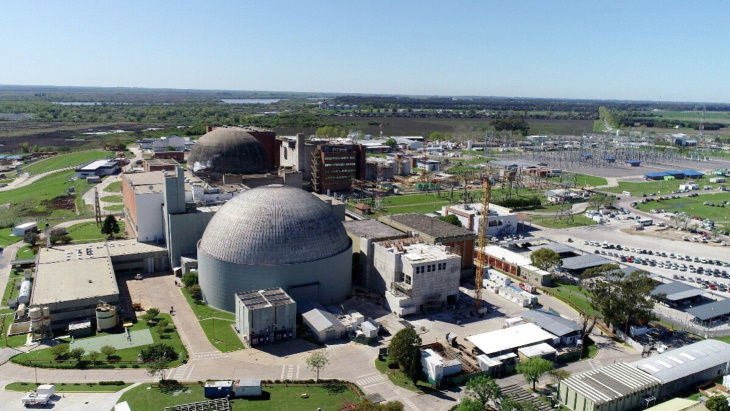
Nucleoelectrica (NA-SA) is currently preparing to submit a licence renewal application to Argentina's Nuclear Regulatory Authority to extend the operating lifetime of Atucha nuclear power plant's unit 1 by 20 years, to 2044. The 362 MWe pressurised heavy water reactor entered commercial operation in 1974. The operator said in October the life extension project plan would see the unit undergo a 30-month upgrade stoppage from 2024 to 2026, with 2000 jobs created as it modernised "all the processes and systems of the plant".
The International Atomic Energy Agency's team's visit, which concluded on 7 March, follows pre-SALTO missions in 2016, 2018 and a pre-SALTO follow-up mission in 2021. The team reviewed the preparedness, organisation and programmes for safe long-term operation (LTO).
Gabor Petofi, team leader and IAEA Senior Nuclear Safety Officer, said: "The team noted the measures taken by the operator to ensure the safe LTO of the plant. Additionally, the professionalism, openness and receptiveness exhibited by the plant staff towards suggestions for improvement are commendable. Many of the ageing management and LTO activities are already in alignment with IAEA Safety Standards. We encourage the plant to address the review findings and proceed with the implementation of all remaining activities for safe LTO."
The IAEA team gave examples of good practice, to share with the nuclear industry more widely: "The qualification of coatings designed to ensure integrity of the containment building; comprehensive condition assessment reports for safety related structures, systems and components; objective score cards used for evaluation of applications for internal vacancies.
Its recommendations for further development were to "provide a systematic safety assessment to identify reasonable safety improvements for the operation period beyond 2024 ... complete and implement the qualification programme for electrical components inside the containment [and] ... improve the implementation of ageing management of civil structures".
The IAEA mission team provided a draft report at the end of the visit to the plant management and to the national regulator, with a final report to be issued within three months.
Eduardo Arostegui, site manager at the Atucha plant, said: "The IAEA and NA-SA teams showed a strong commitment to the successful implementation of the SALTO mission, working in a professional and collaborative environment, sharing information and experience. The SALTO findings will help us to ensure a safe and reliable development of LTO activities and will also improve performance for the second cycle of operation of Atucha I."
The mission, which included experts from Belgium, Brazil, Japan, Slovenia, Spain, Sweden, the USA, and two IAEA staff members, was requested by Nucleoelectrica. Atucha unit 2, also a pressurised heavy water reactor, began commercial operation in 2016.